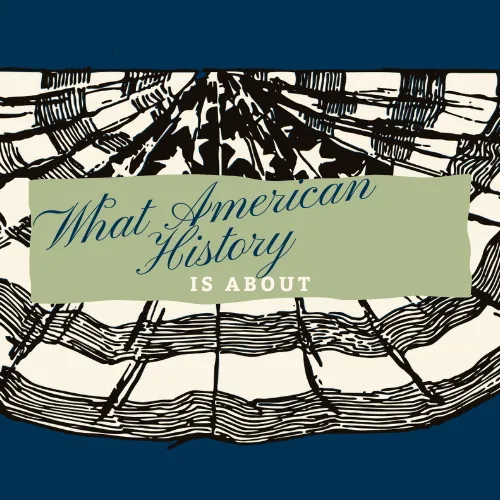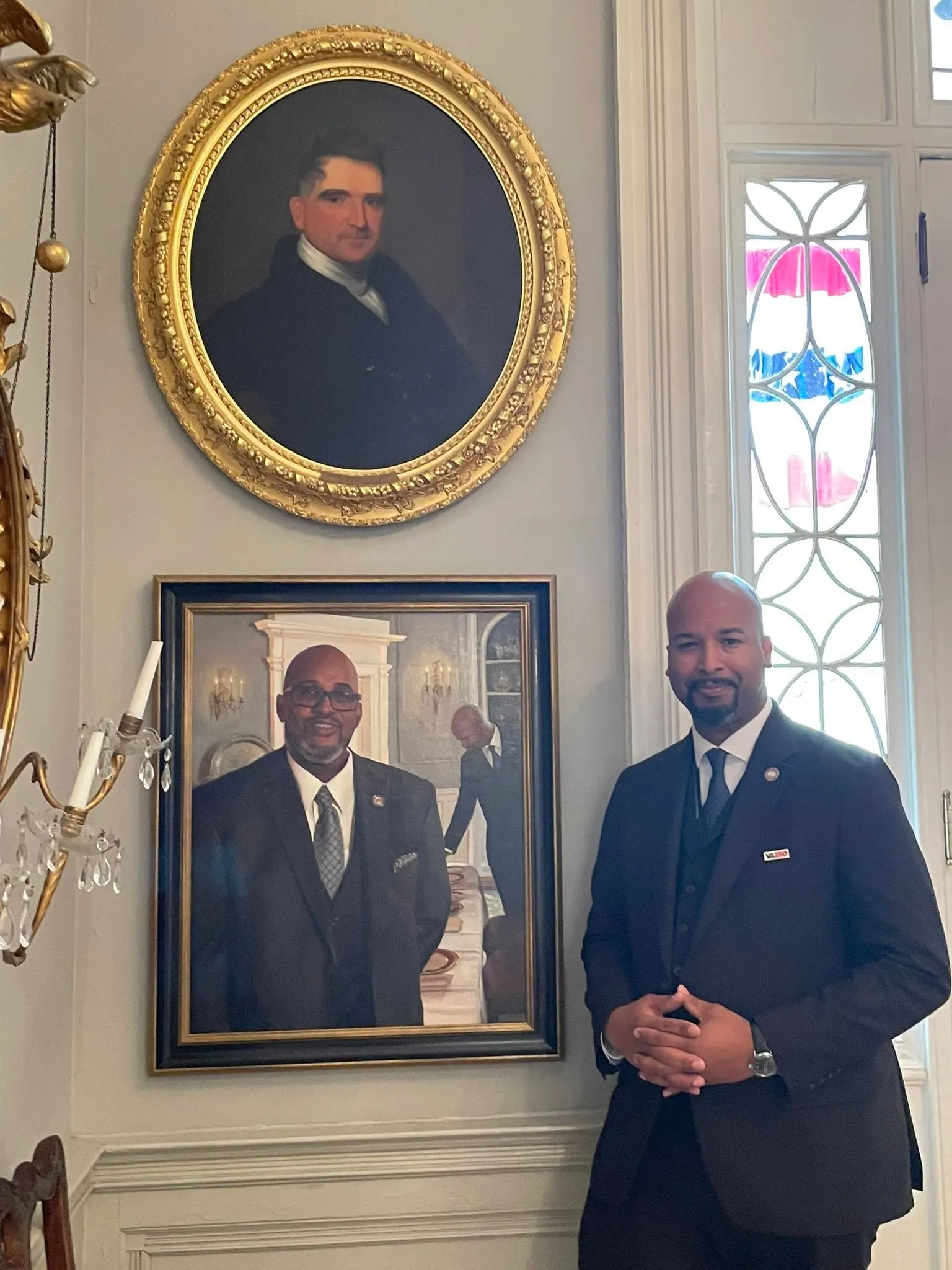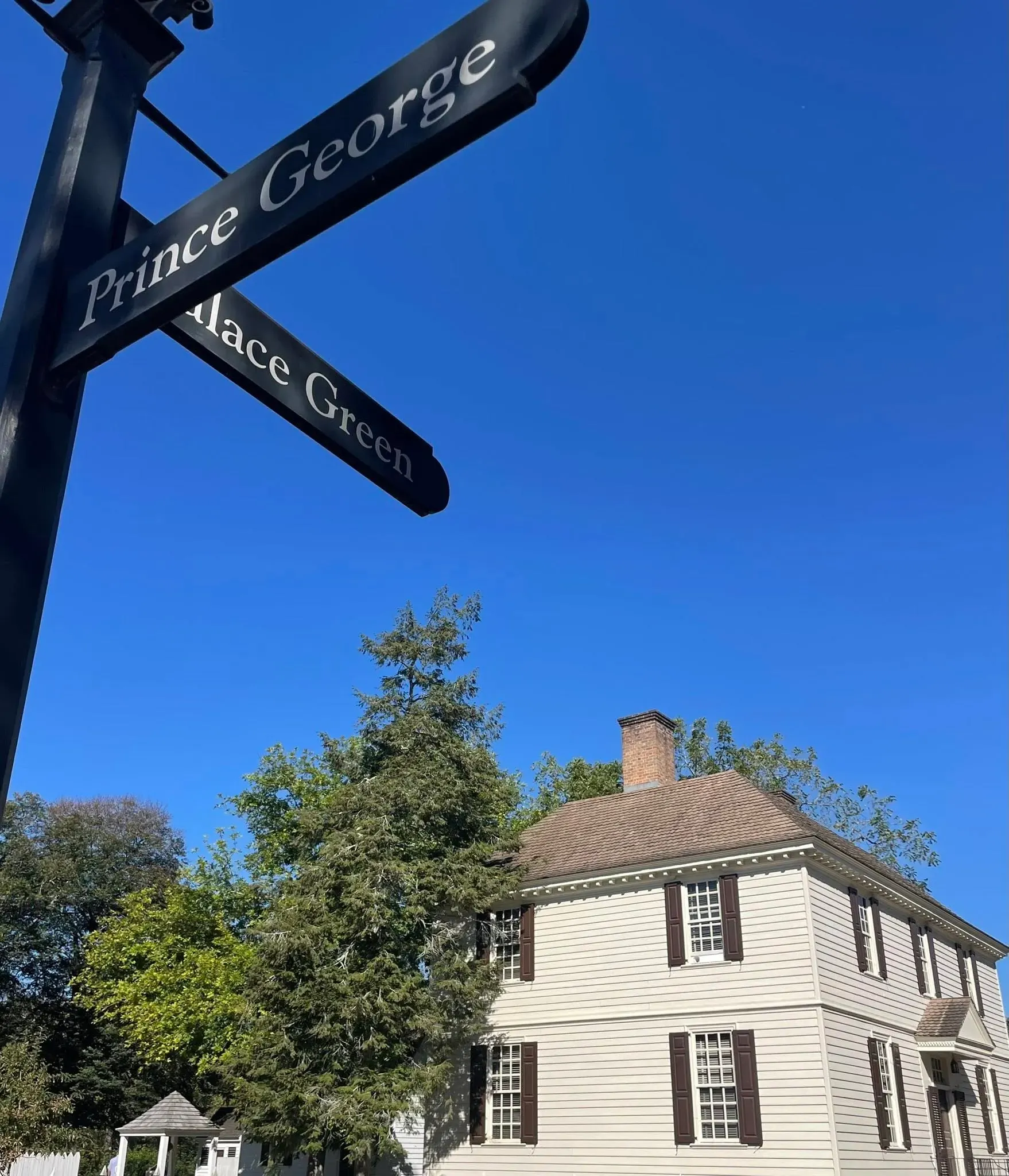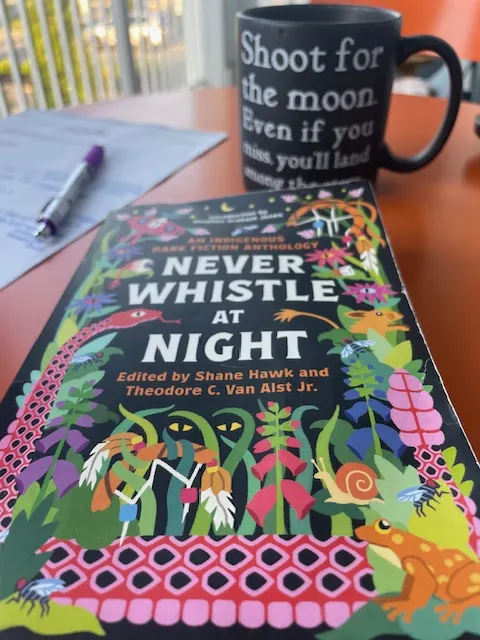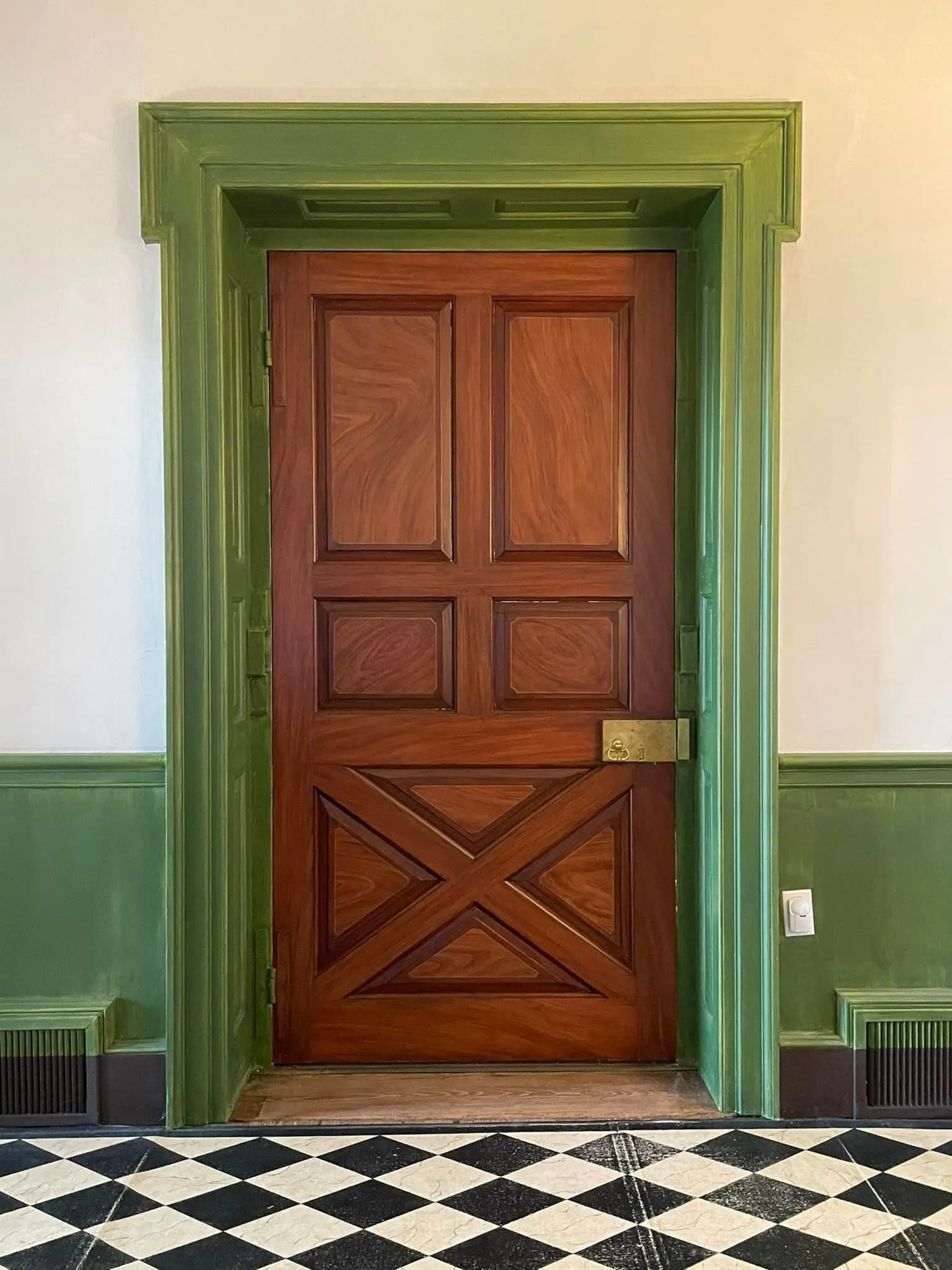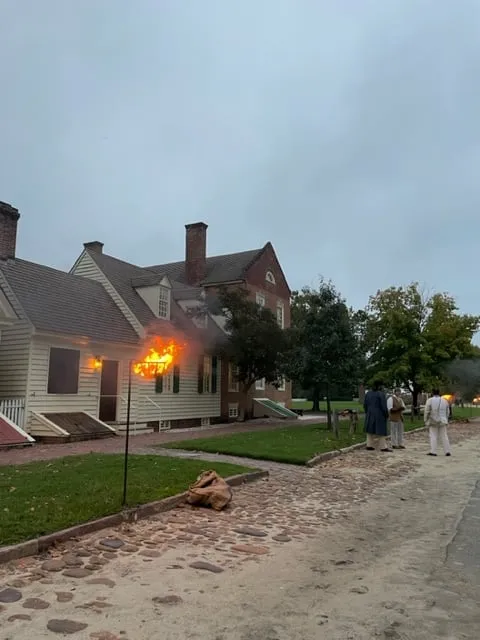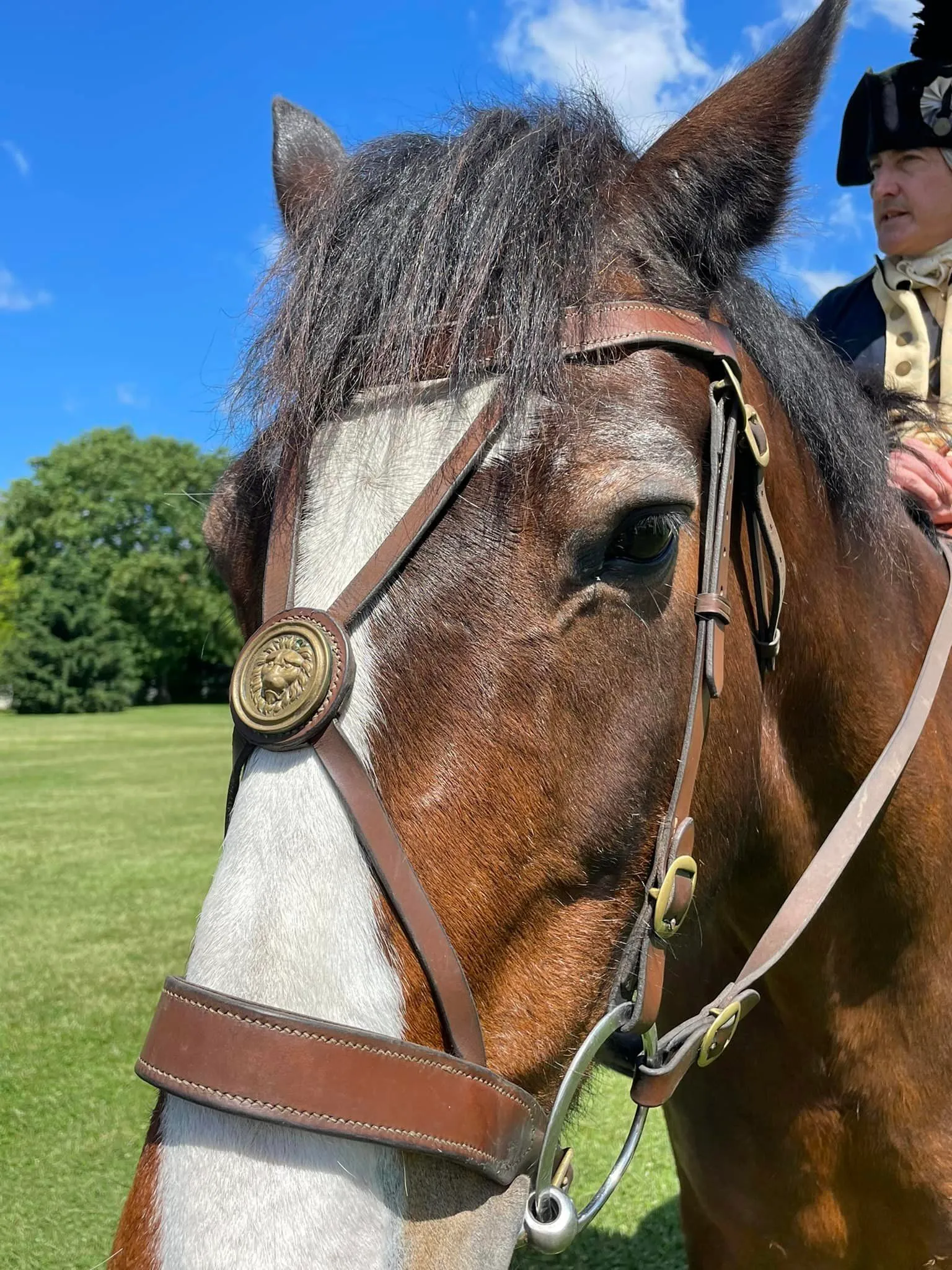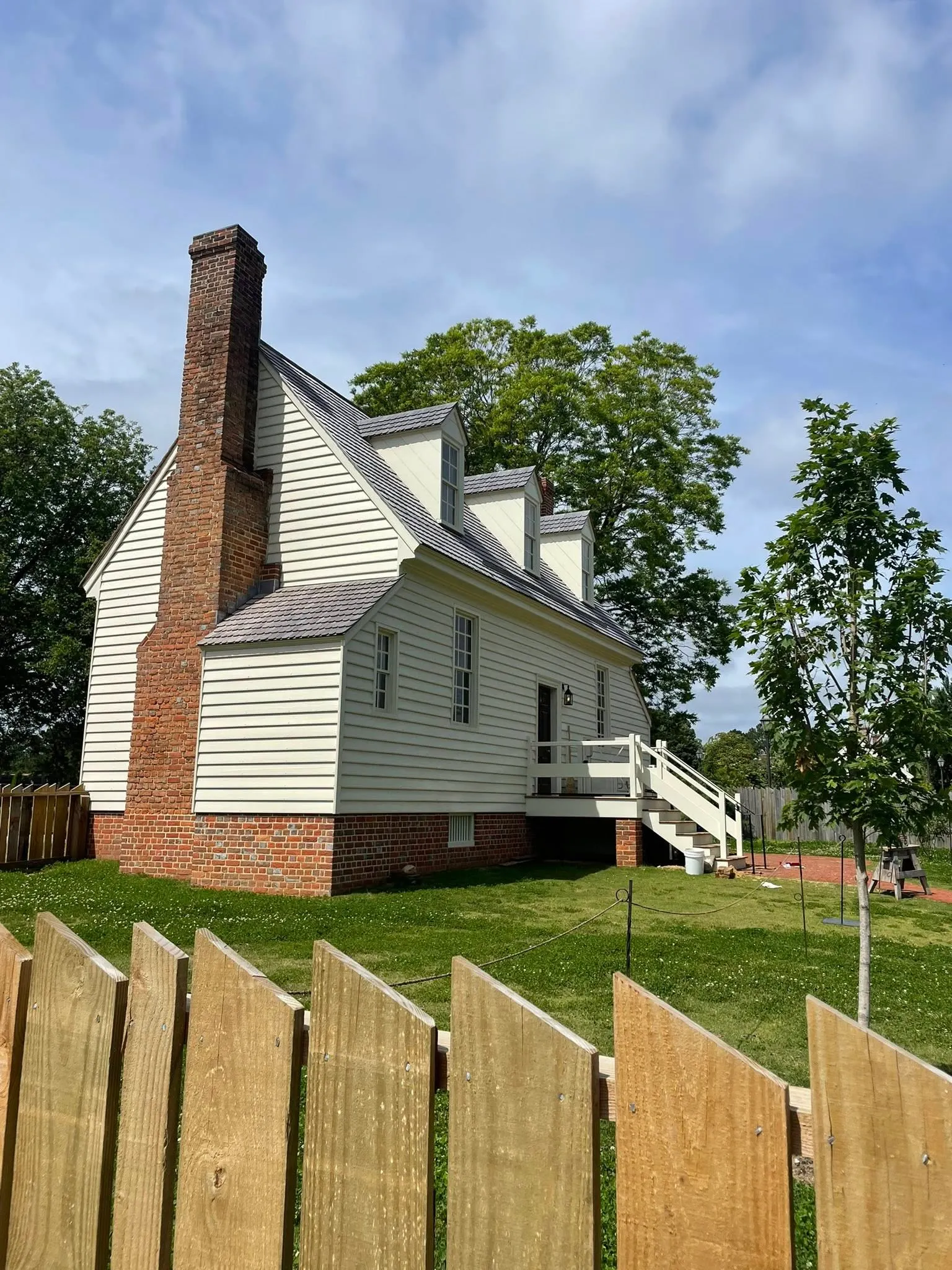Notes on How Decisions to Take Action Impacted American History
The reason I'm writing this post is because I'm procrastinating.
So I'm taking an alternative action! I have a BIG project to start: an email campaign for my Free At 50 blog business- related to my ability to earn affiliate income from sharing Groove, where this blog is hosted. I LOVE GROOVE and how easy it is to host a blog on it. I also love their email platform. But I always freeze up a bit on getting started. I was the gal that wrote entire papers the night before they were due in college- and got great grades, but still.
So instead of getting on this project and creating the content for all the emails. I decided to write a short post born from inspiring words about taking action as well as a few thoughts about taking action- all related to our American history.
Disclaimer: As a blogger, I use affiliate links sometimes! I may receive commission from purchases I share, but it does not change your price but sometimes you might get a discount.
RELATED: Check Groove out here, because you can test-drive it free for a year and you may want to start your own hobby blog! (Heads up, they do send a lot of emails but you can unsubscribe!)
Back to American history and to taking action.
Writing and signing the declaration was a massive action to take.
Can you imagine what was going through the minds of people like Benjamin Franklin, Thomas Jefferson, John Adams and the other 2 men (rarely mentioned) Roger Sherman and Robert Livingston who presented the Declaration of Independence to the others for signature? They were taking action- with the possibility of being hanged for treason.
What if they had procrastinated? Maybe individually they felt hesitant and would've been slower to act (if at all) but the power of being part of something so "big" drove the action.
All are questions to ask some of our Nation Builders here in Colonial Williamsburg (CW) who have studied primary sources like diaries and letters, where some private thoughts were shared.
EXAMPLE: click here to read about Robert Weathers and his deep dive into George Wythe; this is how CW brings history alive through our Nation Builders.
My procrastination on a marketing project seems silly in light of the enormity of the words Mr. Jefferson put to paper and the other members of the committee helped him turn into the document so many members of the Continental Congress adopted.
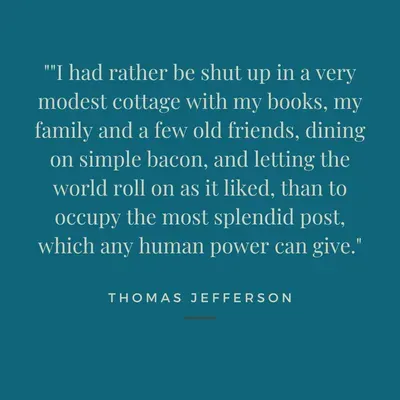
Colonel George Washington took action: he left farming life and led the Continental Army.
What if George Washington decided to stay at Mt. Vernon and retire into farming? First off, he didn't ditch farming (thank God because his passion for experimental farming was important to our agricultural history). He actually managed his land from anywhere and everywhere through letters.
However, in June of 1776, he added to his responsibilities by becoming our nation's leader during the Revolutionary War- and in follow-up, as you know, our first President.
After what we refer to as The Seven Years War, and all I've learned about Washington's thoughts and words about his experience from Daniel Cross, who portrays him in CW, I'm shocked but not surprised he took on the role of Commander-in-Chief.
Last week, I saw "The Cost of War," a performance written by Mr. Cross and based on his research into Washington's experience both during and following the Seven Years' War. He was never diagnosed, but the implications of both words and actions, as well as his decision to take action during the Revolutionary War, more than hint at what we know to be PTSD (Post Traumatic Stress Disorder).
RELATED: If you know a veteran/soldier suffering from PTSD that needs help, you can begin research to support them here. I know this is a big issue but starting somewhere, anywhere, is still a start.
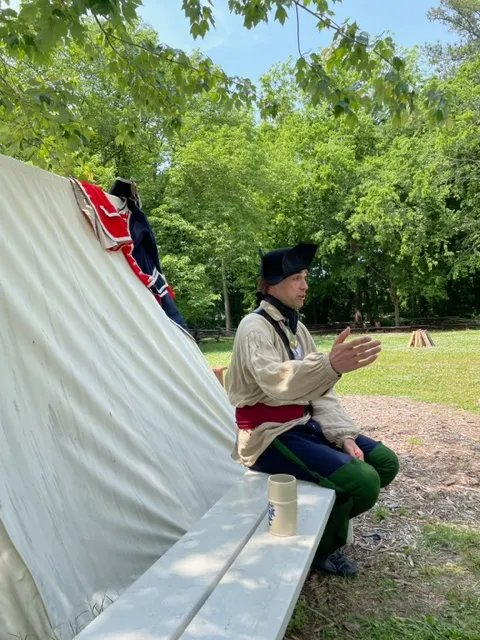
Daniel Cross portraying Col. Washington during the Seven Years' War
The French support in our Revolution helped us win the war.
Ok, it sounds dramatic, but the more I learn and the more I meet people who have studied early American history and the road to independence, the stronger I feel in my opinion.
And when (or if??) would the support have come if not for the actions of one 19-year old Marquis?
Inspired by the words of the Duke of Gloucester at a dinner party, he bought a ship, gathered a group of men to join him, and headed for America... defying his own King who told him to essentially stay out of it.
In the words of Mark Schneider who is our Nation Builder Lafayette... "all's well that ends well" - quoting an Englishman in a bit of irony.
More on the Marquis de Lafayette in this post I wrote over the summer. Click here!
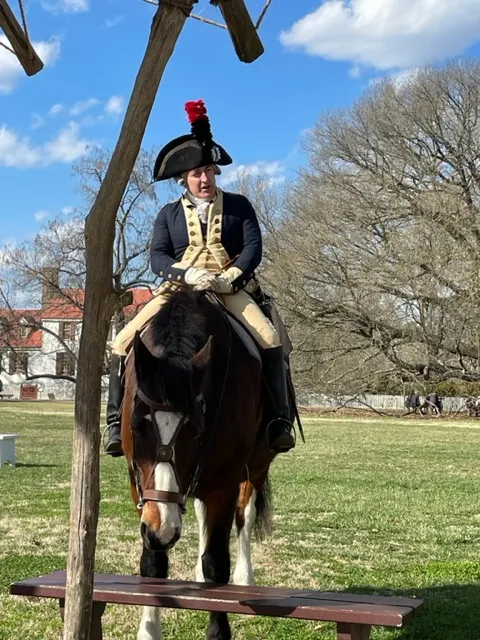
Mark Schneider portraying the Marquis de Lafayette
Am I ready to work on my marketing project?
Yes, I'm inspired that taking action is both important and truly "easy" compared to actions of the people I've focused on this morning but instead, I'm headed to CW, inspired to see, experience, and learn a bit more history.
Closing with an excerpt from Benjamin Franklin's 1775 letter to the speakers of the Colonial Assemblies on England taking action- the decision to invade America: (read the letter in full here)
From Benjamin Franklin to the Speakers of the Colonial Assemblies: a Circular Letter from Franklin, William Bollan, and Arthur Lee, 5 February 1775
To the Speakers of the Colonial Assemblies: a Circular Letter from Franklin, William Bollan, and Arthur Lee2
ls: Library of Congress
London Feb 5. 1775.
Sir
Our last Letter informed you, that the King had declared his Intention of laying the Petition before his two Houses of Parliament. It has accordingly been laid before each House, but undistinguished among a Variety of Letters and other Papers from America.
A Motion made by Lord Chatham, to withdraw the Troops from Boston, as the first Step towards a conciliating Plan, was rejected; and the Ministry have declared in both Houses the Determination to inforce Obedience to all the late Laws. For this Purpose we understand that three Regiments of Foot, one of Dragoons, seven hundred Marines, six Sloops of War, and two Frigates, are now under Orders for America.3
Are you enjoying this blog? Invest in my ability to continue and buy me a coffee:
Cheers!
There is a huge practical disclaimer to the content on this blog, which is my way of sharing my excitement and basically journaling online.
1) I am not a historian nor an expert. I will let you know I’m relaying the information as I understand and interpret it. The employees of Colonial Williamsburg base their presentations, work, and responses on historical documents and mainly primary sources.
2) I will update for accuracy as history is constant learning. If you have a question about accuracy, please ask me! I will get the answer from the best source I can find.
3) Photo credit to me, Daphne Reznik, for all photos in this post! All photos are personal photos taken in public access locations or with specific permission.
